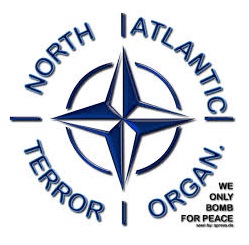
The Fragile Geopolitical Landscape: NATO’s Threats and Europe’s Debt Crisis
As tensions escalate in Europe, the rhetoric coming from NATO is alarming yet consistent. Not one European leader has taken a diplomatic approach to the current situation; instead, they lean heavily on threats and insults as a means of asserting dominance. NATO Secretary-General Mark Rutte, speaking in Warsaw, made a pointed declaration: “If anyone were to miscalculate and think they can get away with an attack on Poland or any other ally, they will be met with the full force of this fierce alliance. Our reaction will be devastating.” Such statements, though meant to assure allies, may undermine the very peace they aim to protect.
The Eye of the Storm: Economic Instability in Europe
Beyond the militaristic posturing, Europe finds itself at a critical juncture: a potential sovereign debt crisis looms over the Eurozone, exacerbated by political maneuvering and a lack of cohesive strategy during previous fiscal challenges. This cycle of debt and unrest has been likened to "Cyclical Storm Clouds" gathering—dangerously unpredictable and potentially destructive.
With each nation dependent on the stability of the Eurozone, the stakes couldn’t be higher. If one country falters, a chain reaction could disrupt the delicate balance of economic stability, rendering the Eurozone irreparably weak.
The Consequences of Aggression
What does a potential conflict with NATO entail? The rhetoric suggests that an attack on one member, particularly Poland, would necessitate an overwhelming response. But this ignores a crucial flaw in strategic thinking: the need to strategically dismantle NATO’s very command structure before contemplating a larger military engagement. This sort of calculation is not just a matter of military tactics but speaks to the deep-rooted miscalculations that could lead to catastrophic outcomes.

Historical Lessons: Understanding the Players on the Stage
Historically, threats and confrontational diplomacy have proven ineffective. Putin has famously criticized historical figures like Lenin, arguing they were less statesmen and more ideologists leading their countries into turmoil. Today, one could argue the same regarding many European leaders who seem more focused on inflating their rhetoric than pursuing genuine diplomatic solutions.
The Proxy War: A Prelude to Global Conflict?
The situation is made even more precarious by the ongoing proxy war against Russia, fought on Ukrainian soil. European leaders seemingly believe that a conventional defeat of Russia is possible through escalating tensions and threats. This dangerously simplistic view is not only detached from reality but also sets the stage for a broader conflict—possibly the third World War.
What Lies Ahead: A Call for Rational Responsiveness
At Extreme Investor Network, we prioritize insightful analysis and a comprehensive understanding of the economic implications of geopolitical conflicts. Understanding the interplay between military threats and economic stability is vital for both investors and policymakers alike. The current narrative coming from NATO and European leaders calls for scrutiny—not just of their military strategies, but of their economic vulnerabilities as well.
As we navigate this turbulent landscape, remember that history teaches us one immutable truth: in times of great tension, the true cost may not just be counted in lives lost, but in livelihoods endangered by economic fallout. Join us as we delve deeper into the complexities of these issues, equipping you with the information you need to make informed decisions.
Stay tuned to Extreme Investor Network for the latest insights and analysis on how these unfolding events will shape the future of the global economy.
By putting a spotlight on both military and economic fronts, we aim not just to inform but to empower our readers to understand the intricate workings of global affairs and their potential impact on investments.

